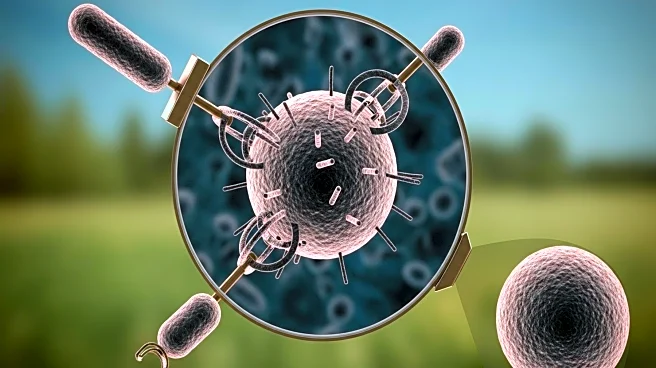What's Happening?
A recent study published in Nature investigates the mechanisms behind the effectiveness of polymyxins, a class of antibiotics used against Gram-negative bacteria. The research, conducted by Edwards, Hoogenboom, and colleagues, reveals that metabolic activity in bacterial cells is crucial for the efficacy of polymyxins. The study found that metabolic inactivity in bacteria confers tolerance against these antibiotics. The researchers propose a model where polymyxin B triggers the release of lipopolysaccharides (LPSs) in metabolically active cells, facilitating the antibiotic's entry into the periplasm and leading to cell death. This discovery highlights the importance of metabolic processes in antibiotic action and could inform future antibiotic development strategies.
Why It's Important?
Understanding the mechanisms of antibiotic action is critical in the fight against antibiotic-resistant bacteria, a growing public health concern. The study's findings suggest that targeting bacterial metabolism could enhance the effectiveness of existing antibiotics like polymyxins. This could lead to improved treatment strategies for infections caused by Gram-negative bacteria, which are often resistant to multiple drugs. The research also underscores the need for continued exploration of antibiotic mechanisms to develop new drugs and combat resistance, potentially benefiting healthcare systems and patients worldwide.









